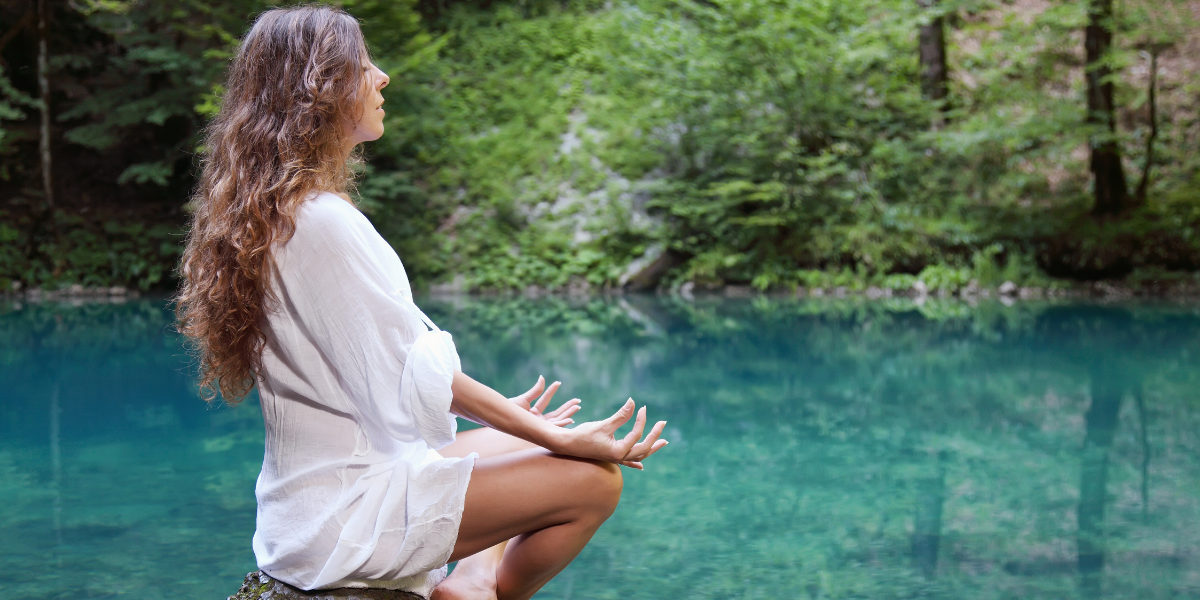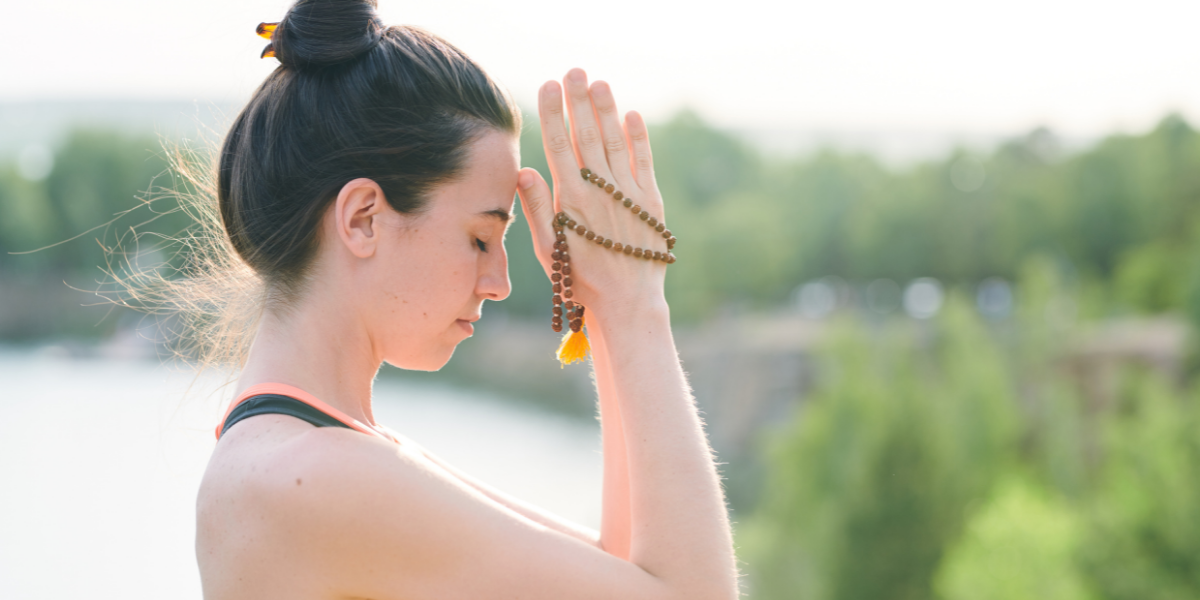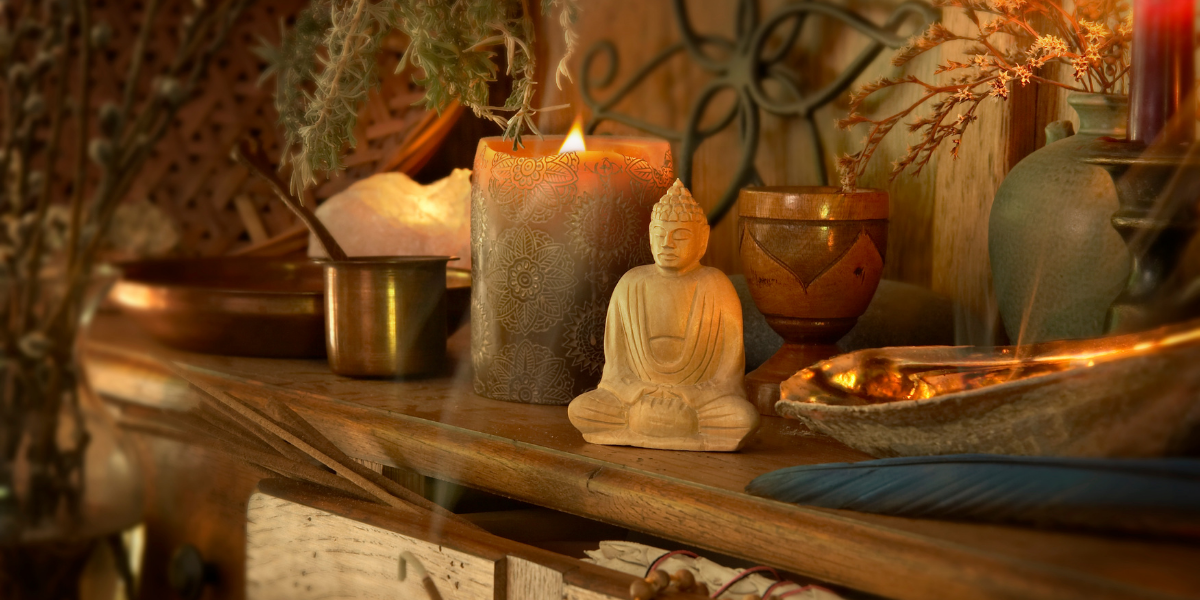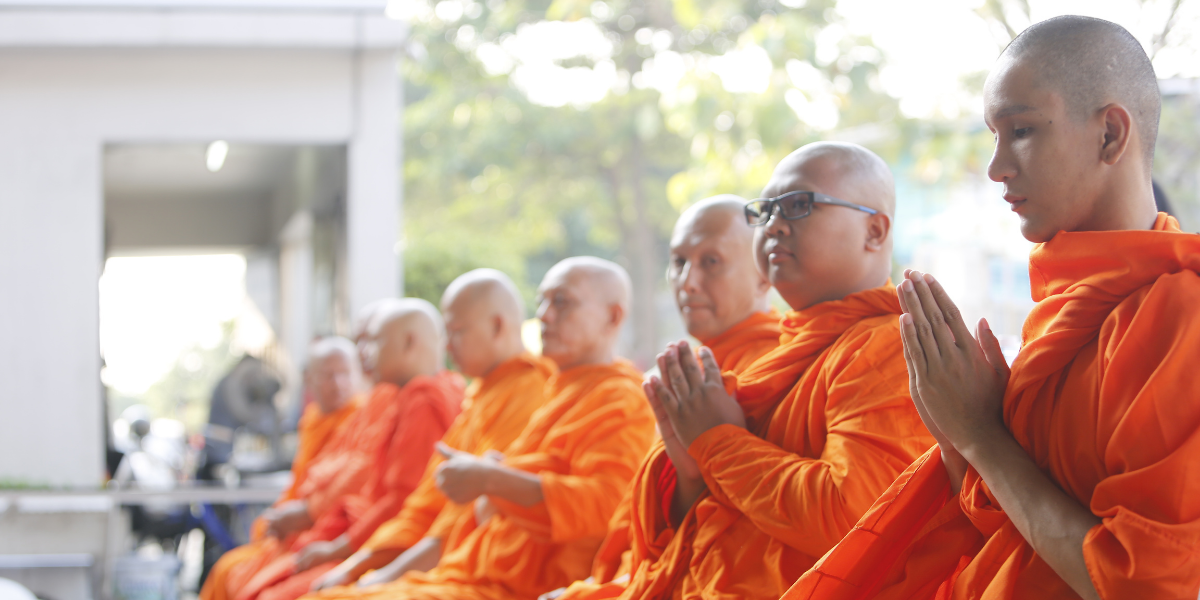Clearing Up the Confusion: Spirituality Vs Religion
When it comes to spirituality vs religion, a lot of people tend to think they're the same thing. But in reality, they're actually pretty different. Sure, they both deal with the idea of a higher power or some kind of divine connection, but that's about where the similarities end.
First off, spirituality is all about your personal experience and inner growth. It's a journey of self-discovery and understanding your own connection to something bigger than yourself.
Religion, on the other hand, is more structured and has a lot more rules and guidelines. It's passed down through traditions and has a lot of specific practices and beliefs.
And honestly, a lot of people find themselves somewhere in the middle, identifying as both spiritual and religious. It's all about what feels right for you and what makes you feel connected to something bigger than yourself.
Spirituality: The Personal Quest for a Divine Connection

When it comes to spirituality, it's all about that personal connection to something greater than ourselves. Unlike religion, spirituality doesn't have a specific set of rules or teachings to follow. It's all about the individual's experience and understanding of the world around them.
So, what exactly does spirituality believe in? For starters, it's the idea of a divine connection between ourselves and the world around us. It's about understanding our place in the universe and feeling that sense of oneness with everything. And unlike religion, spirituality doesn't necessarily believe in just one higher power - it's the belief that everything in the universe is connected and part of a grand design.
And here's the thing - everyone's spirituality is different. Some people believe in God, some don't. There's no one guidebook to spirituality, it's all about finding your own truth through your experiences and interactions with the world. It's about being good, being at peace with nature, and feeling connected to something bigger than yourself.
Now, it's important to note that just because someone is spiritual, it doesn't mean they're religious. And conversely, just because someone is religious, it doesn't mean they're spiritual. But for some religious folks, spirituality can play a big role in getting closer to their religious beliefs.
There's a lot of debate over whether spirituality is the "purest" form of connecting to our souls, or if it's just the foundation of most religious teachings. Some argue that spirituality is an abstract concept that evolves into a set of concrete laws and guidelines in religion. But the bottom line is that spirituality is a personal quest, and there's no right or wrong way to approach it. It's all about finding what feels true for you.
Religion: Understanding the Organized Practice of Faith

Religion is something that's hard to ignore - it's everywhere we look, with different forms and traditions from all over the globe. Despite the variety, they all share one key belief: a connection to a higher power, and that by following certain rules and practices, we can get closer to it.
At its core, religion is all about worship and service to a divine creator. It's the idea that there's something greater than ourselves out there and by following specific rules and traditions, we can connect to it. Religion is more structured and organized than spirituality. It often involves going to a specific place of worship and participating in set practices and rituals.
When it comes to the actual practices, religions vary widely. But generally, most religions have a list of dos and don'ts that followers must abide by. It's not just about what you do, but also how you act and behave. In most religions, there's a sense of right and wrong, and committing a wrongdoing is seen as going against the beliefs of the faith.
For many people, being religious is a big part of their identity. They follow the doctrines and teachings of their religion and try to align their actions with what they believe is in line with their faith. Many religious teachings are conservative, rooted in tradition and customs that date back centuries. Many holy texts and manuscripts have been written on early history and teachings of religions, and their various cultures.
But while religion is more structured than spirituality, it also has its own unique set of beliefs, customs and practices followed by its followers. And, while many religious teachings are rooted in traditions and customs of the founder's era or major historical followers of the religion, it's important to respect the diverse ways people practice their religion.
How Is Spirituality Different From Religion?

When it comes to spirituality and religion, it can be hard for a lot of people to tell the difference. And honestly, it's not surprising - on the surface, they seem pretty similar. But dig a little deeper and you'll find that they're actually quite different.
Here's a breakdown of the key differences between the two:
It's important to note that while these are the main differences, they are not always mutually exclusive. Some people may practice both spirituality and religion, and some religious practices may incorporate elements of spirituality. The key difference between the two is the structure and approach, but in the end, it's all about what feels true for the individual.
Spirituality vs Religion: Tracing the Roots of Faith

When it comes to spirituality and religion, it's a topic that can spark a lot of debate and discussion. Some argue that spirituality is the foundation of all religions, while others believe that the two are completely separate entities. So, where do they really come from? And what's the difference between the two?
First, let's talk about spirituality. This is a pretty broad term, and it can mean different things to different people. But at its core, spirituality is about finding your own path and beliefs. It's about exploring the meaning of life and connecting with something greater than ourselves. There's no set structure or doctrine to follow, and there aren't any specific texts or books that outline the practice of spirituality. It's a more free-form way of thinking about the world and our place in it.
Now, let's look at religion. This is a bit more structured and organized than spirituality. Most religions have a set of rules and doctrines that followers are expected to abide by. They often have holy texts and documents that teach the origins of their faith, and the history of their religion is well-documented. Religion is also often associated with specific practices and rituals, like going to a house of worship or participating in certain ceremonies.
It's worth noting that spirituality and religion are not mutually exclusive. Some people may practice both, while others may incorporate elements of spirituality into their religious beliefs. For example, some religious people may use meditation or other mindfulness practices to help them connect with their faith.
Another important point is that spirituality has been present for a long time, even though it seems to be more popular during recent years. Many people - both religious and atheist - follow spirituality without realizing it.
The approach of whether spirituality came first or religion came first is a personal one and cannot be proven or disproven. The most important thing is that both spirituality and religion offer different paths for individuals to understand and connect with their beliefs and the world around them
How Do I Practice Spirituality?
Looking to get into spirituality but not sure where to start? Don't worry, you're not alone! A lot of people have the same question: "how do I practice spirituality?" The great thing about spirituality is that there's no one right way to do it, so you have the freedom to find what works best for you.
Here are a few things to try out if you're not sure where to begin:
- 1Meditation: This is one of the best ways to connect with your inner self. Set aside some quiet time each day to sit and focus on your breath. You might also want to try guided meditations to help you get started.
- 2Get closer to nature: Spending time in nature can be a great way to feel more connected to the world around you. Take a walk in a park, go for a hike, or just sit outside and enjoy the sights and sounds.
- 3Be mindful: Mindfulness is all about being present in the moment. This can be as simple as paying attention to your thoughts, or taking a moment to appreciate the little things in life.
- 4Prayers and affirmations: Whether you're religious or not, saying prayers or writing out affirmations can be a powerful way to stay connected to yourself. Use this time to focus on your goals, intentions, and what you want to achieve in life.
Keep in mind that these are just a few suggestions, and there are countless other ways to practice spirituality. The key is to find something that resonates with you and to make it a regular part of your routine.
How Do I Practice Religion?
The most frequently asked question is 'how do I practice religion?'
Practicing religion can take many forms and can vary widely depending on which religion you follow. But, some common ways to practice religion include:
- 1Worship and Service: This often involves going to a specific place of worship and participating in a set of practices and rituals such as prayers, hymns, and sacraments.
- 2Reading and Studying Sacred Texts: Many religions have a holy book or texts that contain teachings and stories that are central to their faith. Reading and studying these texts can deepen your understanding of the religion.
- 3Following Moral and Ethical Code: Many religions have a set of principles or commandments that followers are expected to live by. Following these guidelines can help you to lead a more virtuous life.
- 4Serving and Helping Others: Many religions have a strong emphasis on serving and helping others. This can take the form of volunteer work, charity, or service to the community.
- 5Reflecting and Contemplation: Some religions have contemplative practices, such as meditation, that help individuals to focus on their spiritual growth and connecting to the divine.
It's important to remember that every individual practices their faith differently and has their own understanding of it. It's important to find what works for you and resonates with you.
Which path to choose: Spirituality or Religion?

After pitting both of them together by asking the question, Spirituality Vs Religion: What Do We Know? It's important to remember that there's no one "right" way to practice or believe. Everyone is different and what works for one person might not work for another.
One of the biggest differences between the two is structure - religion tends to be more organized and has a set of rules and practices that followers are expected to adhere to, while spirituality is more open-ended and allows for personal expression and interpretation.
It's totally possible to be both spiritual and religious, or to follow neither path. The key is to find what resonates with you and what helps you grow and become a better person. If you're feeling lost or uncertain, try exploring different religions and spiritual practices. Read religious texts or try meditating. Ultimately, it's all about discovering what feels true to you.

